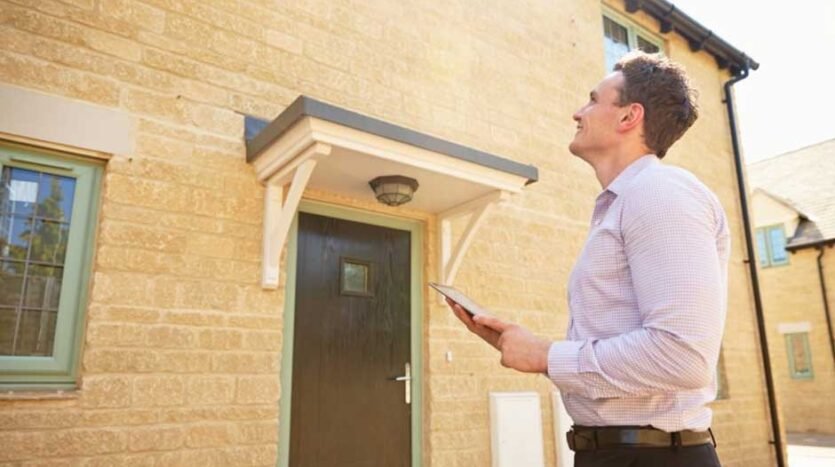Property Valuation Explained: Factors That Determine Your Home’s Worth
Understanding the value of a property is an essential step for anyone involved in buying, selling, or even maintaining a home. Whether you’re a homeowner planning to sell or a buyer looking to make an offer, Property Valuation provides clarity about a property’s worth in the current market.
But what exactly determines a property’s value? In this blog, we’ll break down the key factors that influence property valuation and why each one matters.
1. Location, Location, Location
The age-old real estate adage highlights the undeniable importance of location in property valuation. Where your property is situated significantly impacts its worth.
Key location-based factors include:
- Proximity to amenities: Properties close to schools, shops, parks, and public transport hubs are often more desirable and, therefore, more valuable.
- Neighbourhood appeal: Safe, well-maintained, and thriving neighbourhoods typically attract higher property values.
- Future developments: Planned infrastructure projects, such as new transport links or commercial hubs, can increase a property’s value over time.
2. Property Size and Layout
The size of a property, including its number of bedrooms and overall square footage, plays a central role in determining its value. Buyers often assess a property based on how well it can meet their space needs.
However, it’s not just about size; layout and usability matter too. A well-designed floor plan with good flow and functional spaces can add significant value. For instance, open-plan living areas and ample storage options are increasingly popular features.
3. Condition and Age of the Property
The condition of your property directly affects its valuation. A home that is well-maintained, with updated features and minimal repair needs, will typically command a higher price.
Key considerations include:
- Structural integrity: Any visible signs of damage, such as cracks, leaks, or dampness, can negatively impact value.
- Modern fittings: Properties with updated kitchens, bathrooms, and energy-efficient features are often more appealing.
- Age: While older homes with character can be valuable, they may also require more maintenance, which can affect their worth.
4. Market Conditions
The state of the housing market is another significant factor influencing property valuation. Property prices are affected by supply and demand dynamics:
- Seller’s market: When demand outstrips supply, property values tend to rise.
- Buyer’s market: Conversely, when there’s an oversupply of homes, buyers have more bargaining power, and values may drop.
Additionally, broader economic factors, such as interest rates and employment levels, also impact the housing market and property values.
5. Comparable Properties
Estate agents and valuers often look at comparable properties (or “comps”) in your area to determine your home’s value. These are recently sold homes with similar characteristics to yours, such as size, age, and location.
For example, if a property similar to yours recently sold for £300,000, this figure will heavily influence your valuation. However, any unique features your home has—such as a larger garden or better views—may increase its value.
6. Unique Features and Upgrades
Certain features and upgrades can set your property apart and boost its valuation. Examples include:
- Outdoor space: A well-maintained garden, balcony, or terrace can add significant appeal.
- Parking: Off-street parking or a garage is highly sought after, especially in urban areas.
- Energy efficiency: Homes with double glazing, insulation, and solar panels often attract higher values due to lower running costs.
- Smart technology: Modern features like smart thermostats, security systems, or lighting can also add value.
Upgrading your doors and windows is another improvement that can make a real difference to both the appearance and efficiency of your home. High-quality glazing enhances insulation, reduces energy bills, and improves security — all factors that buyers value highly. Working with a trusted residential door and window company ensures professional installation and a polished finish that can positively influence your property’s overall valuation.
7. Legal and Zoning Factors
Legal and zoning issues can influence property valuation. For instance:
- Leasehold vs. freehold: Freehold properties are generally more valuable than leasehold ones due to ownership benefits.
- Planning permissions: Having approved permissions for extensions or renovations can increase a property’s value, even if the work hasn’t been done yet.
- Local restrictions: Conservation areas or other zoning restrictions can affect property modifications and, consequently, its value.
8. Curb Appeal
First impressions matter. The exterior appearance of your property can significantly impact how it’s valued. Features like a well-kept garden, fresh paintwork, and clean windows can elevate your home’s appeal and attract higher offers.
Conclusion
Property valuation is a complex process influenced by a wide range of factors, from location and market conditions to unique features and aesthetic appeal. Understanding these elements can help you position your property favourably in the market or evaluate potential purchases more effectively.
Whether you’re looking to sell, buy, or simply gauge your property’s worth, working with a qualified estate agent or valuer ensures you receive an accurate and informed assessment. After all, property valuation isn’t just about numbers—it’s about understanding the market and what makes a home desirable to buyers.
By focusing on the factors that matter most, you can maximise your property’s value and make informed decisions in today’s competitive real estate landscape.


